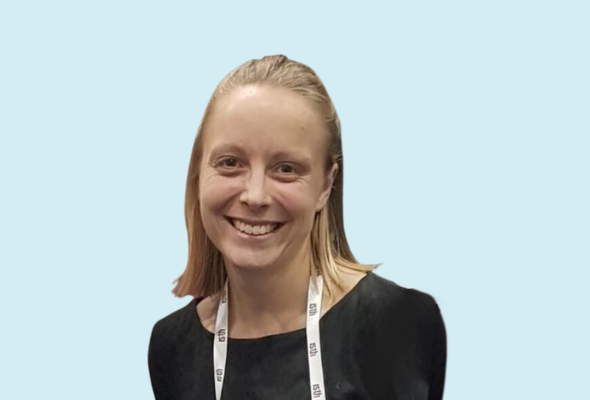20 September 2023
Hear how Victoria Speed's determination to answer the pressing questions of her patients led to changes on an international scale.
Victoria Speed is a Senior Anti-coagulation Pharmacist and Clinical Informatician at King’s College Hospital NHS FT and the University of Oxford. Through research, Victoria has found rivaroxaban can be used in extremes of body weight, which led to a change in the international guidance for administration of direct oral anticoagulants. She was 'highly commended' for her research by the Royal Pharmaceutical Society, and was one of nine nominees shortlisted for this year's Outstanding Pharmacy Early-Career Researcher Award (OPERA).
What is your role within King’s Health Partners?
I am a pharmacist prescriber and have been working in the anti-coagulation team at King's College Hospital NHS FT for the last nine years. In my current role, I work in outpatient clinics and visit the inpatient wards to speak to patients about taking their blood thinning medication. When I am not seeing patients, my role is to conduct research to improve care for patients prescribed blood thinning medication. My particular interest is the use of blood thinning medication at the extremes of body weight.
What do you enjoy most about your role?
Put simply, when hard work doing research makes a difference to the patients we see in clinic. Our team focus our research on trying to answer the questions that come from seeing patients every day. For example, how effective are these tablets in a patient over 150 kg or how safe are these tablets in a patient aged over 95 years? When our work makes a difference, by helping to answer these important questions, that is what I find most enjoyable and rewarding!
What inspired you to get into this work?
The anti-coagulation team have a very multidisciplinary approach to both clinical work and research. I was inspired to pursue a career in research by another clinical academic pharmacist in the team, Dr Jignesh Patel, whose own research has informed international guidelines in our specialty. So I thought, why not me?!
What are the benefits of working in partnership?
The partnership has been very beneficial for conducting our research across the local trusts. We have some good relationships which enable us to carry out research collaboratively. This has been particularly helpful in very special groups of patients where the number with certain characteristics might be quite low at each individual trust. A good example of this is a project looking at patients with low body weight and how they get on with their anti-coagulant medication.
What would be your career top tips to staff and students?
Pharmacists and other non-medical healthcare professionals have so many transferable skills that are well suited to being a researcher. Even though it might be the path less trodden, I would definitely recommend a career in research!
You can read more about Victoria's research and the OPERA here.





